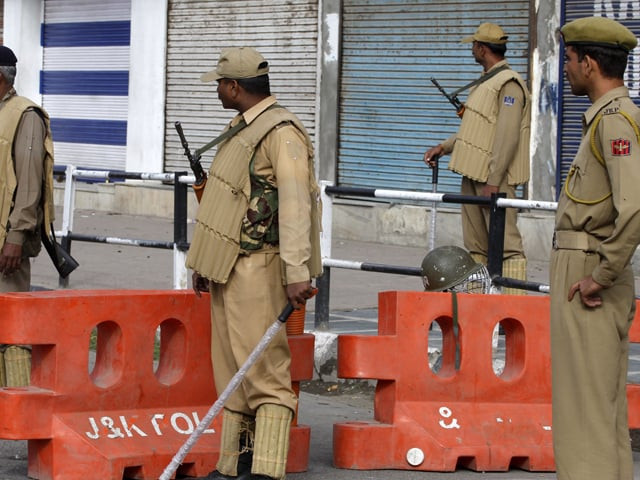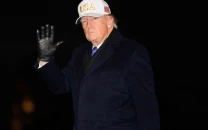India mulls diluting army powers in Kashmir
The Indian government will decide whether to partially lift a 20-year-old emergency law in restive Indian Kashmir.

The Indian prime minister said that the grievances of the Kashmiris have to be addressed and promised talks within the Constitution with those who abjure violence.
As his government weighs options to deal with the situation in Kashmir, Singh emphasised on the need for better delivery of services and generating avenues for economic advancement of the people of the state.
“Unrest in the state of Jammu and Kashmir over the last few weeks is a matter of concern. The youth of Kashmir are our citizens and their grievances have to be addressed,” he told top commanders of the armed forces at a conference here.
“We are willing to talk to every person or group which abjures violence, within the framework of our Constitution,” he said.
Singh, however, made no mention of the controversial Armed Forces Special Powers Act, whose withdrawal from the state is being sought by Chief Minister Omar Abdullah.
The Prime Minister is expected to discuss this issue at the Cabinet Committee on Security.
The Indian government deciding whether to partially lift a 20-year-old emergency law in the region
Security forces again enforced a strict curfew in Kashmir's main town of Srinagar during the day and another protester was shot dead in Bandipora district, in the north of the Muslim-majority region.
A total of 72 protesters and bystanders have been killed by security forces since June 11 when large street protests against Indian rule began, with each new death sparking a new cycle of violence.
The act was passed in 1990 soon after an insurgency against New Delhi rule erupted in the Kashmir valley.
It gives Indian army and paramilitary troops sweeping powers to open fire, search houses, detain suspects and confiscate property, as well as protecting soldiers from prosecution.
Human rights groups have long campaigned against the legislation, which they say encourages abuses by the security forces and fails to meet international standards.
Indian Kashmir chief minister Omar Abdullah has urged the government to withdraw the act, but has met with strong resistance from the Indian military.
Monday's curfew in Srinagar was called to prevent a planned freedom march to a small UN office that houses staff monitoring ceasefire violations along the Line of Control.
Barbed wire and iron barriers were erected to seal off the office in Srinagar.
"A strict curfew is in force and action will be taken against violators," police announced in loud-speakers fitted to vehicles.
Protesters torch church school
An angry mob protesting against a group of Christians who tore up pages of the Holy Quran in Washington torched a missionary school in Indian Kashmir on Monday, police said.
Hundreds of angry Muslims chanting anti-US and pro-Islamic slogans marched through the streets of Tangmarg village, 40 km west of the main town Srinagar, before attacking the Tyndale Biscoe School.
No one was injured in the torching of the school, which was already shut due to unrest.
The school is a branch of one of the oldest missionary-run schools in Indian Kashmir. The main one is in Srinagar, which has produced some of India's leading bureaucrats, doctors, lawyers and engineers.
Police fired teargas and swung batons to disperse the angry protesters, injuring at least four people, said the local police officer in Tangmarg, who spoke to AFP by phone and requested anonymity.
Hundreds of Muslims defied curfews across the region overnight and on Monday to hold protests, chanting "Death to the US!" and "Death to Holy Quran desecrators!" in Srinagar and neighbouring areas, residents told AFP.
The protests erupted after Iran-based Press TV showed a small group of protesters tearing apart pages from the Holy Quran outside the White House on Saturday, the anniversary of the September 11 attacks on the United States.
Night-long demonstrations were also held in Srinagar's neighbouring districts of Budgam and Baramulla, with people blocking roads and reading pages from the Islamic holy book, police and witnesses said.
"This is a despicable act. The perpetuators should be punished for hurting the sentiments of Muslims," leading Shiite cleric and freedom fighters leader Aga Syed Hassan told AFP by telephone from Budgam town.
"We will not take it lying down. We will continue our protests," he said.



















COMMENTS
Comments are moderated and generally will be posted if they are on-topic and not abusive.
For more information, please see our Comments FAQ